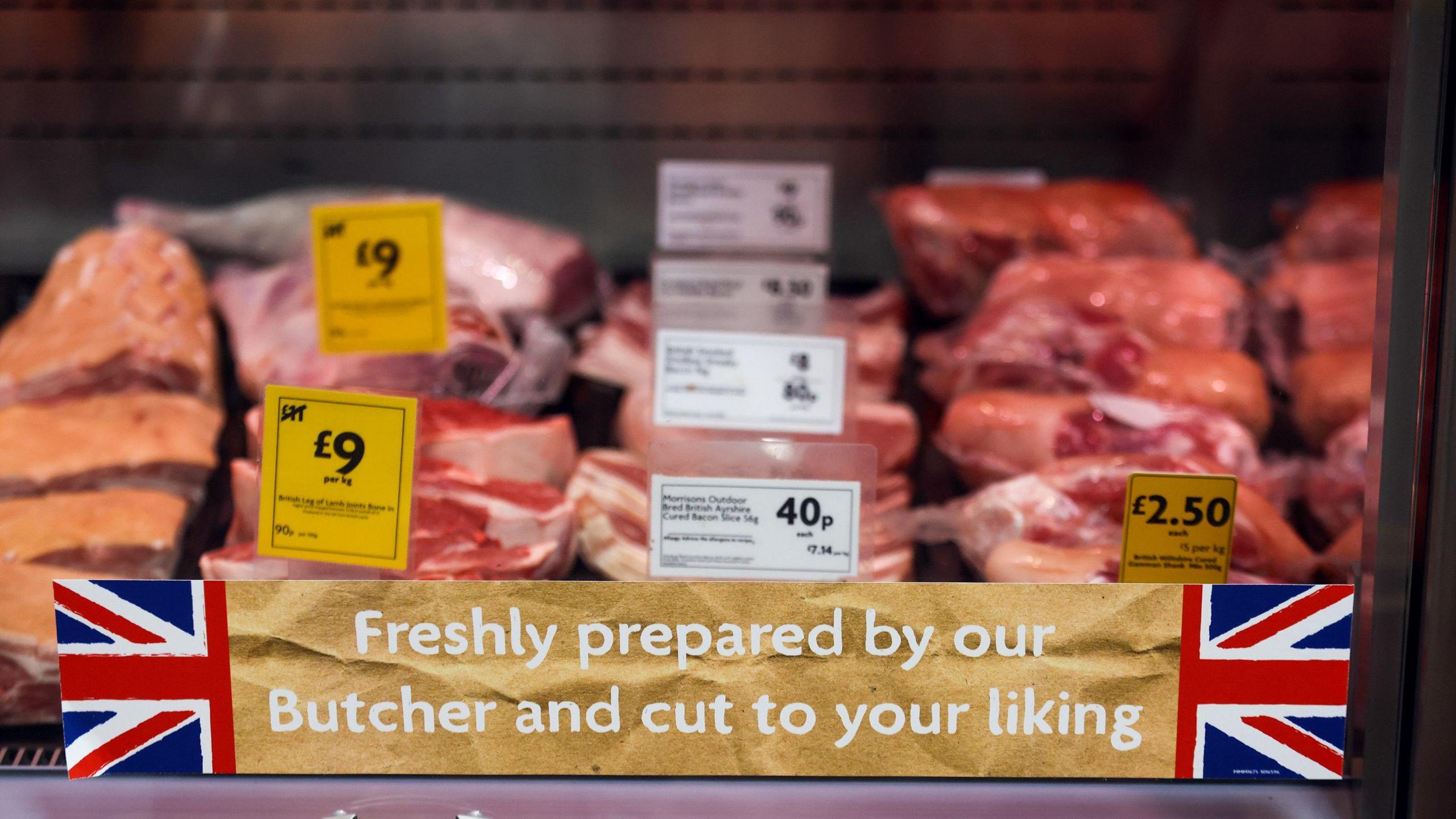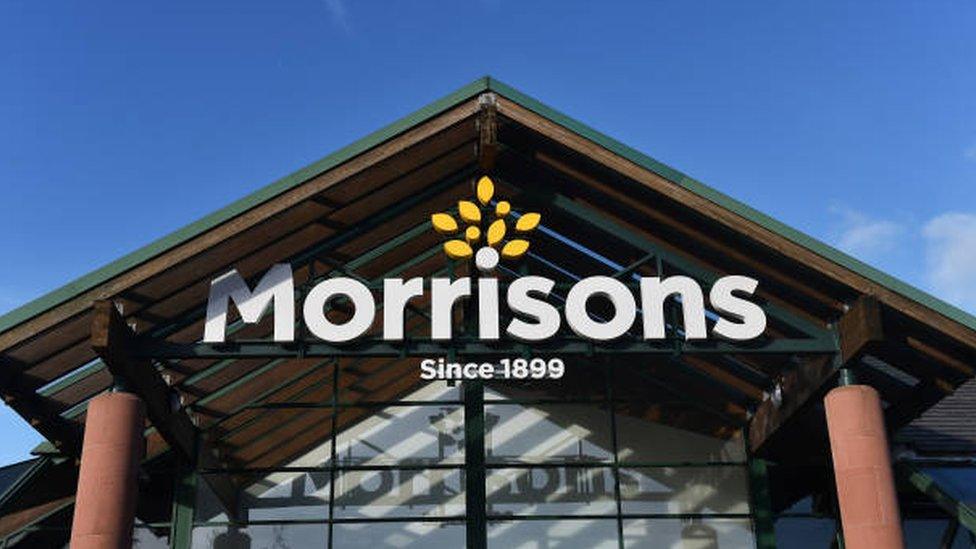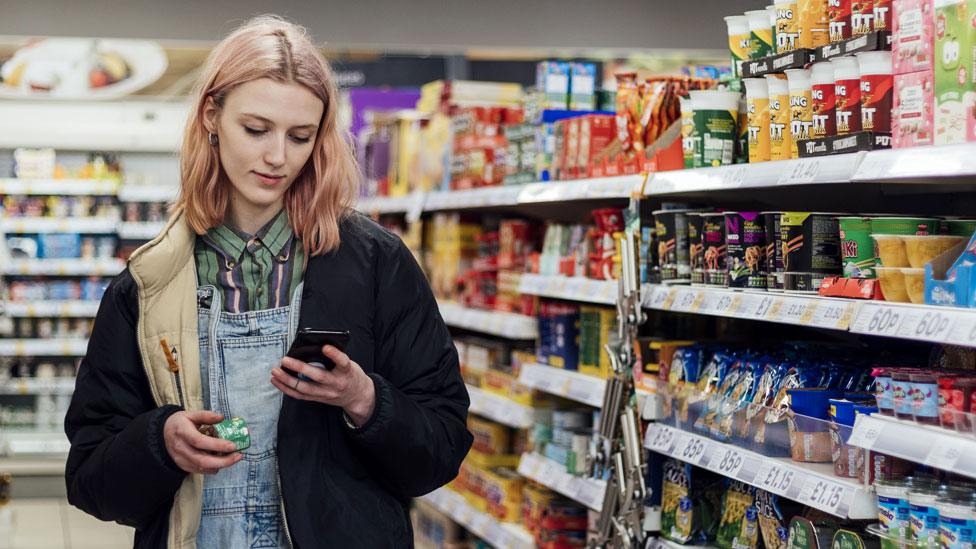Backlash as Morrisons trials sale of New Zealand lamb

- Published
Morrisons has received a backlash from angry farmers as it trials the sale of New Zealand lamb instead of 100% British lamb in 39 of its stores.
The supermarket says the move is due to customer demand for cheaper prices.
"The blunt commercial reality is that New Zealand lamb is cheaper to source", it said in a statement, adding that its butchers' counters will still sell British lamb.
The National Farmers Union (NFU) said it was "disappointing" at a time the British livestock industry was under pressure and that New Zealand lamb is "produced to potentially lower standards".
NFU livestock board chair David Barton said he hoped the supermarket dropping its commitment to sell only British lamb was temporary and that the trial would come to an end.
"Recently, the UK farming unions wrote to the chief executive of Morrisons and other top retailers seeking support for the industry including a steadfast commitment to local sourcing in order to maintain food production across the UK and to safeguard our food security", he said.
Meanwhile, the National Sheep Association (NSA) said it was "dismayed and frustrated" by the decision, which "goes against all the principles on which the supermarket has built its reputation amongst the farming community".
But Morrisons said the trial follows an "extensive exercise" listening to customers who "were very clear" that they wanted the supermarket "to sell lamb at a more accessible price all year round".
It added that New Zealand lamb was cheaper to source than British lamb, although the NFU said the meat from overseas comes with "significant food miles".
Mr Barton said that the "unprecedented wet weather" was an "enormous challenge" for British farmers, urging Morrisons to stick to its 100% British lamb commitment.
Morrisons said: "We do not intend this move to mean a reduction in the overall volumes of lamb that we buy directly from British farmers."
It added that New Zealand lamb will be clearly labelled so customers in the stores participating in the trial can "make a choice".
NSA chief executive Phil Stocker said: "We learnt of this disappointing news whilst returning from the Field to Fork Summit held yesterday with Prime Minister Rishi Sunak at 10 Downing Street."
He described it as an event "that was designed to show support for UK agriculture and where the supermarket itself had a presence promoting its commitment to British farmers."
"So, the timing of this announcement is really quite unbelievable", he added.
Mr Stocker said that UK sheep farmers received "strong prices" because of their high standards, and that the "realistic prices" provided much needed money for re-investment in to their farms in the wake of the Schmallenberg virus causing losses on many farms, and the threat of Bluetongue - an insect-borne viral disease.
Morrisons announced in March that it had made a loss of more than £1bn last year, driven by soaring financing costs as the firm's debt also grew.
The losses come at a time customers' housing budgets are squeezed in the face of the cost of living crisis, which according to major supermarkets has changed shopping habits for good, as people seek out cheaper products.
Related topics
- Published13 March 2024

- Published25 September 2023
